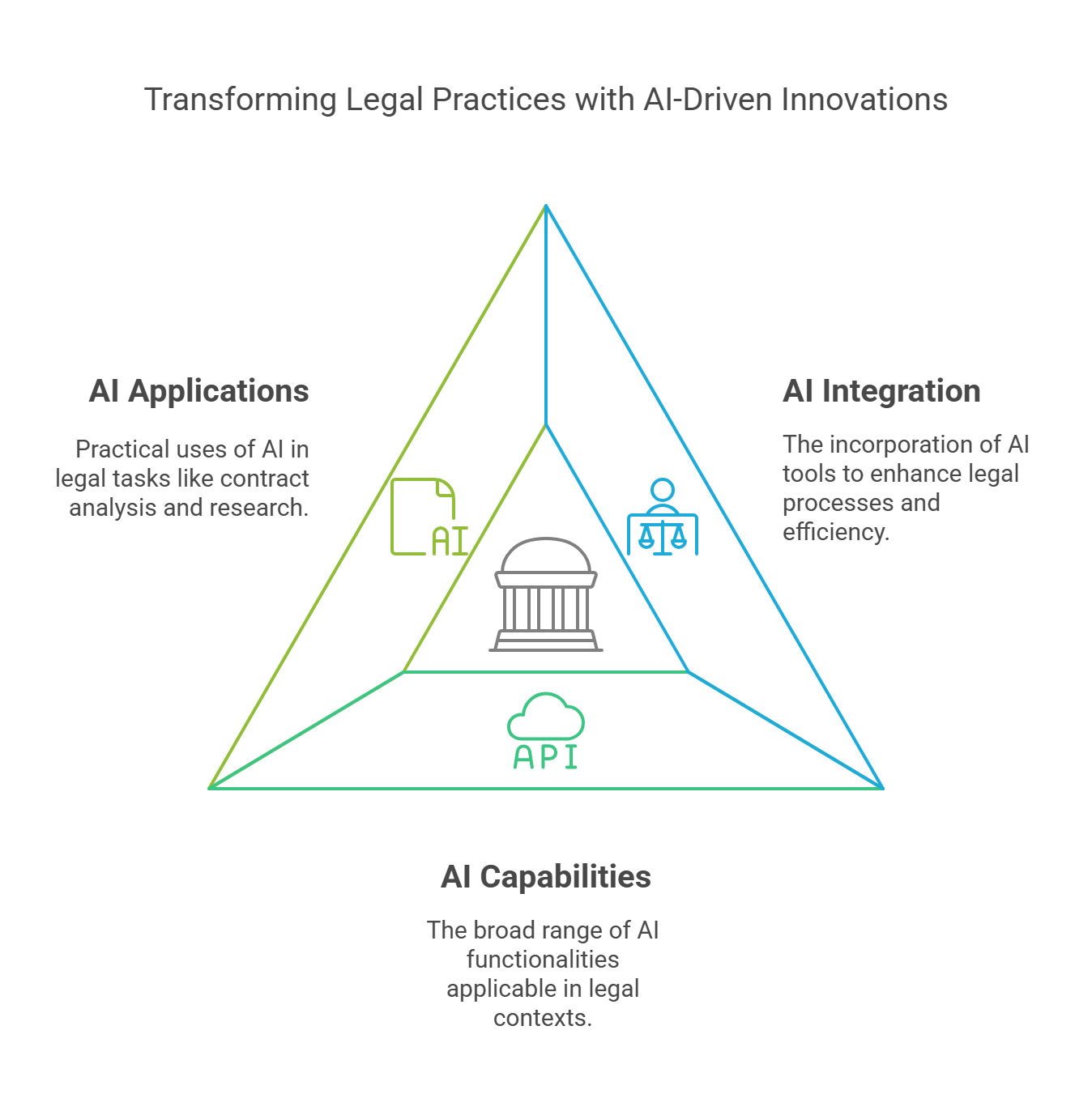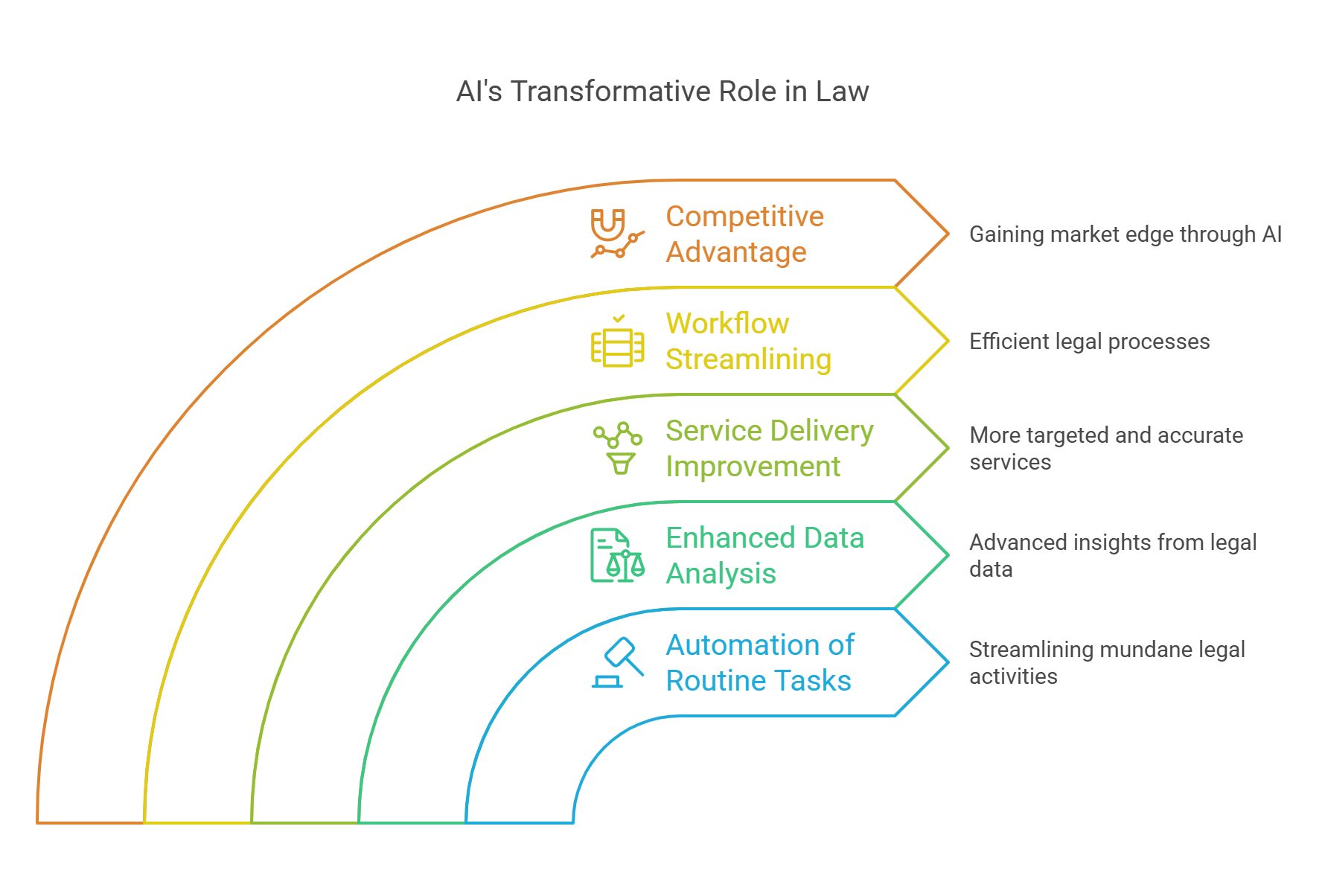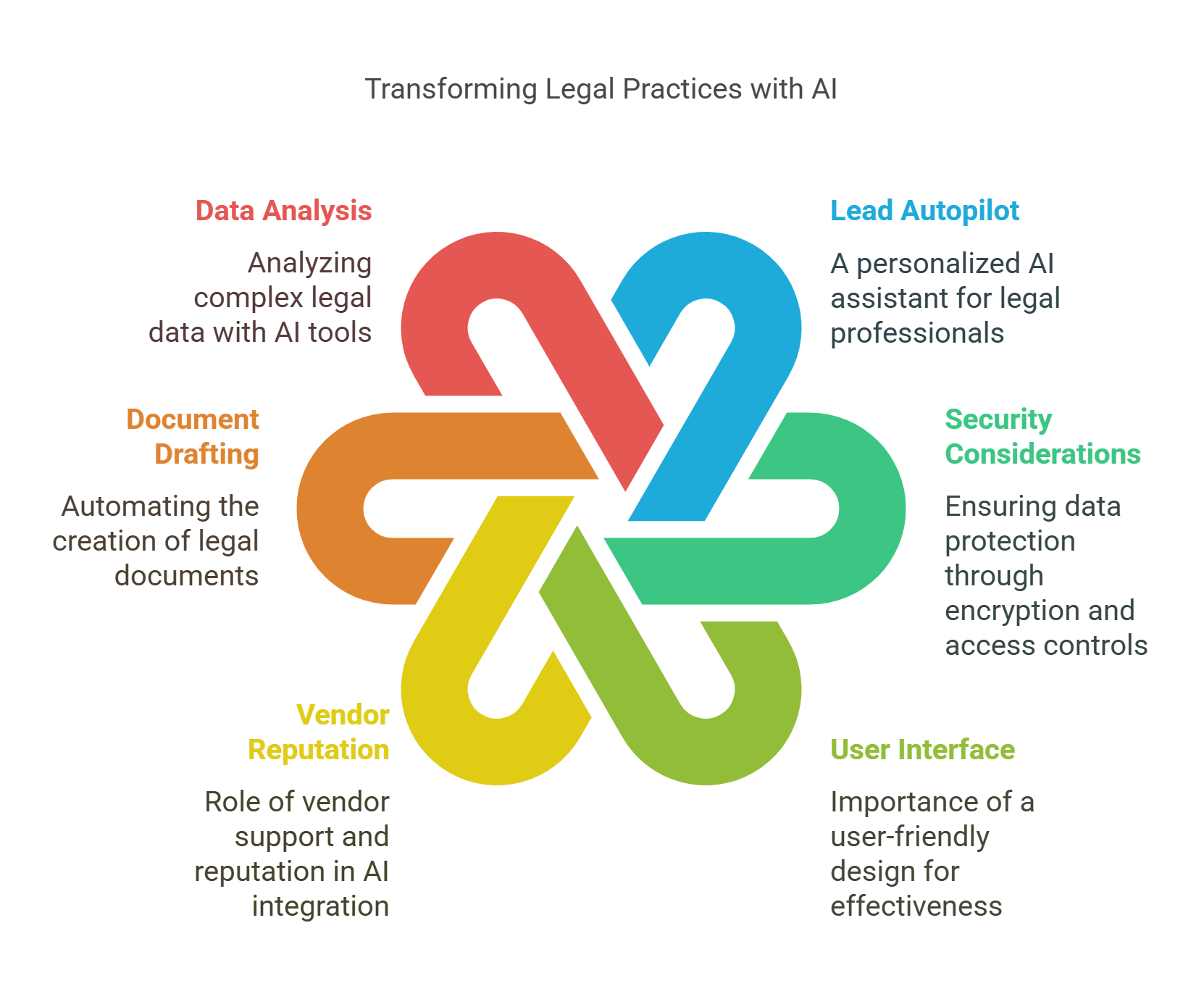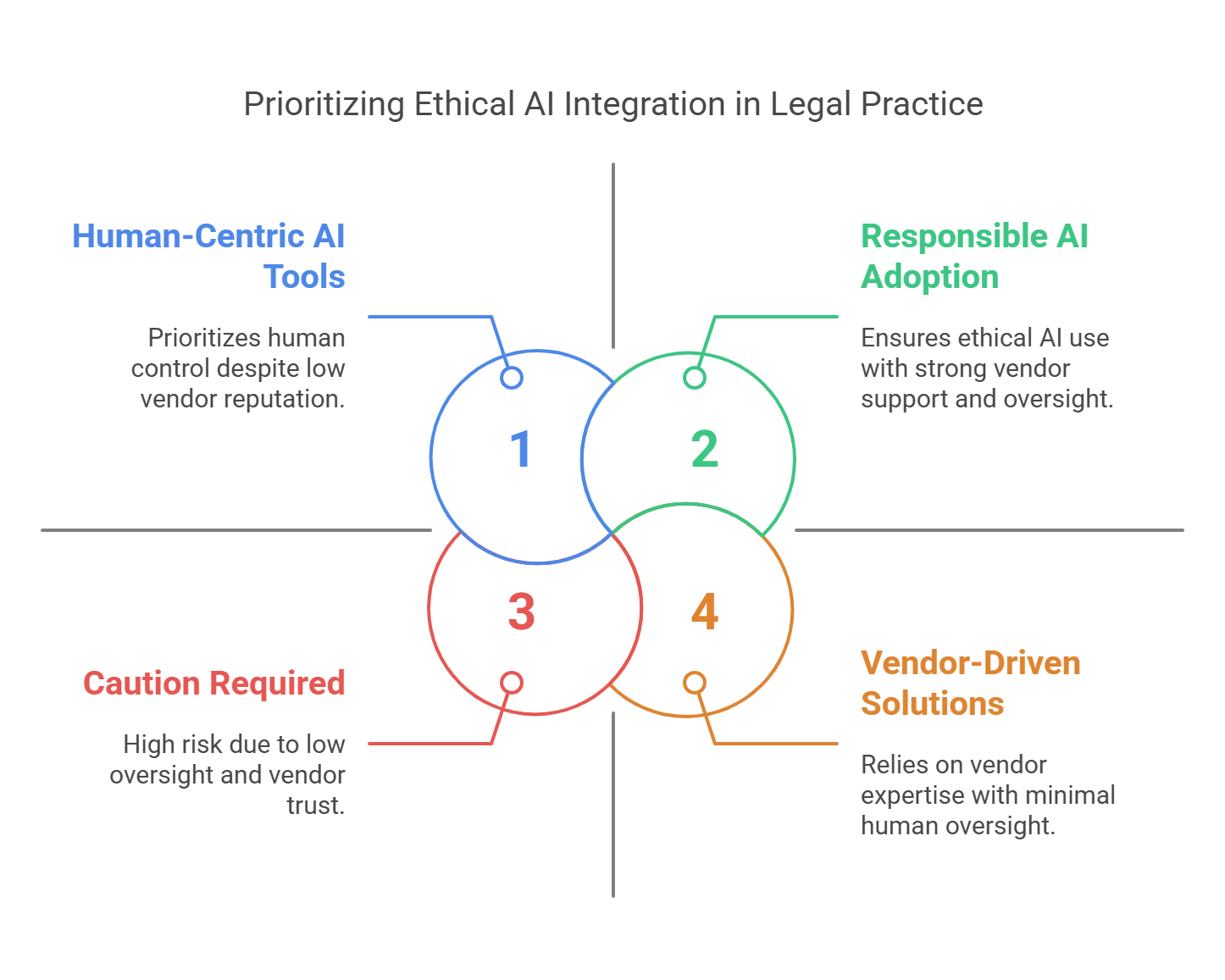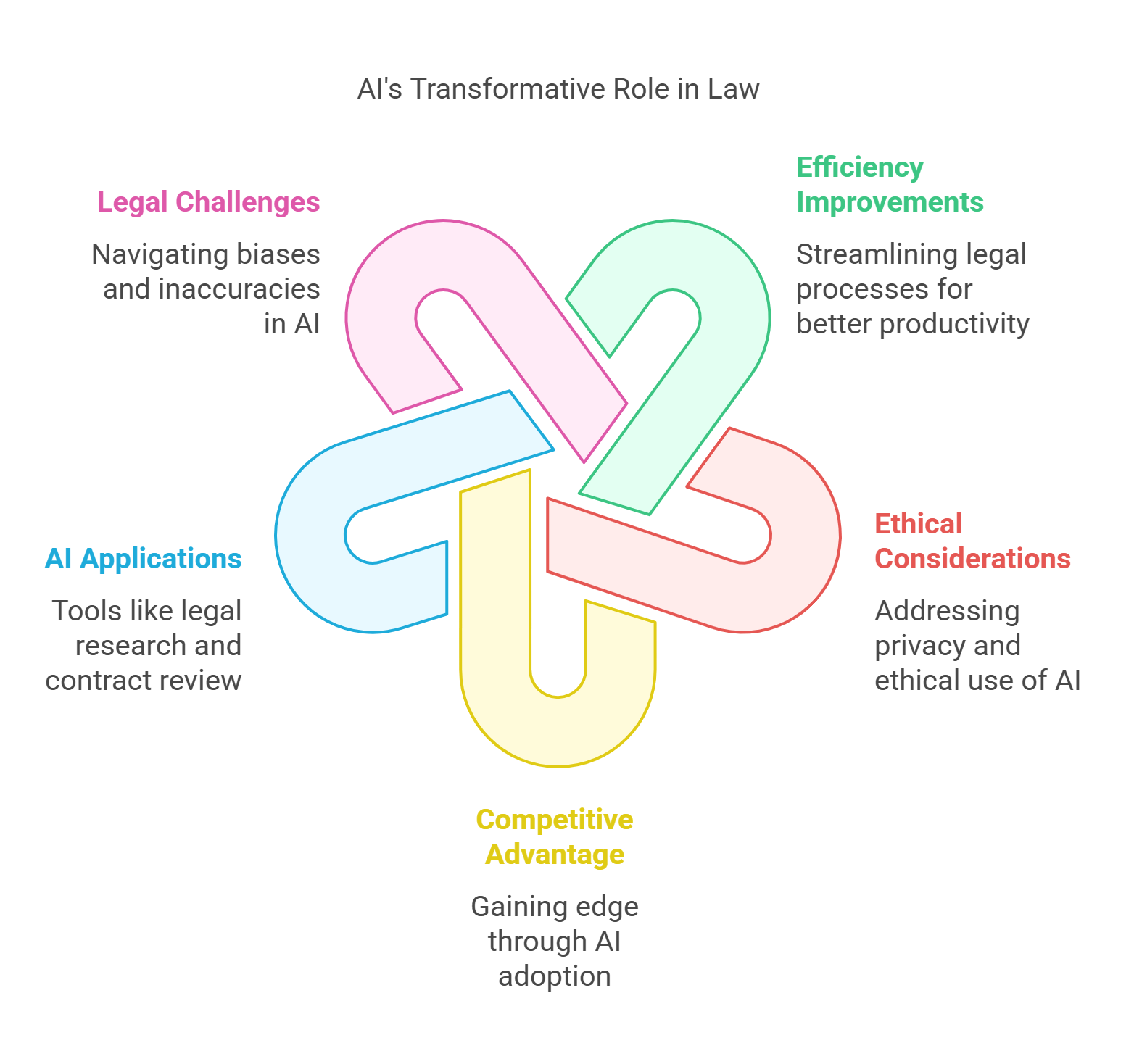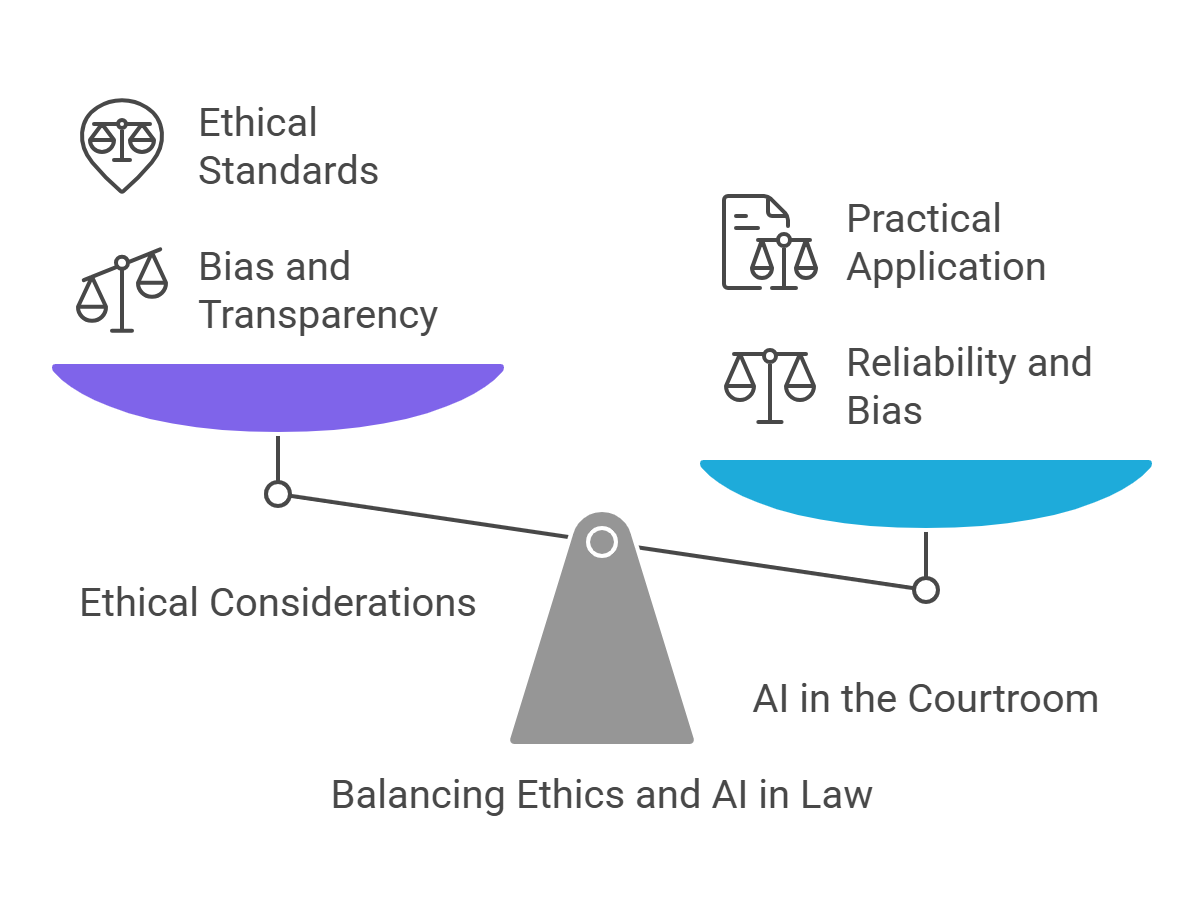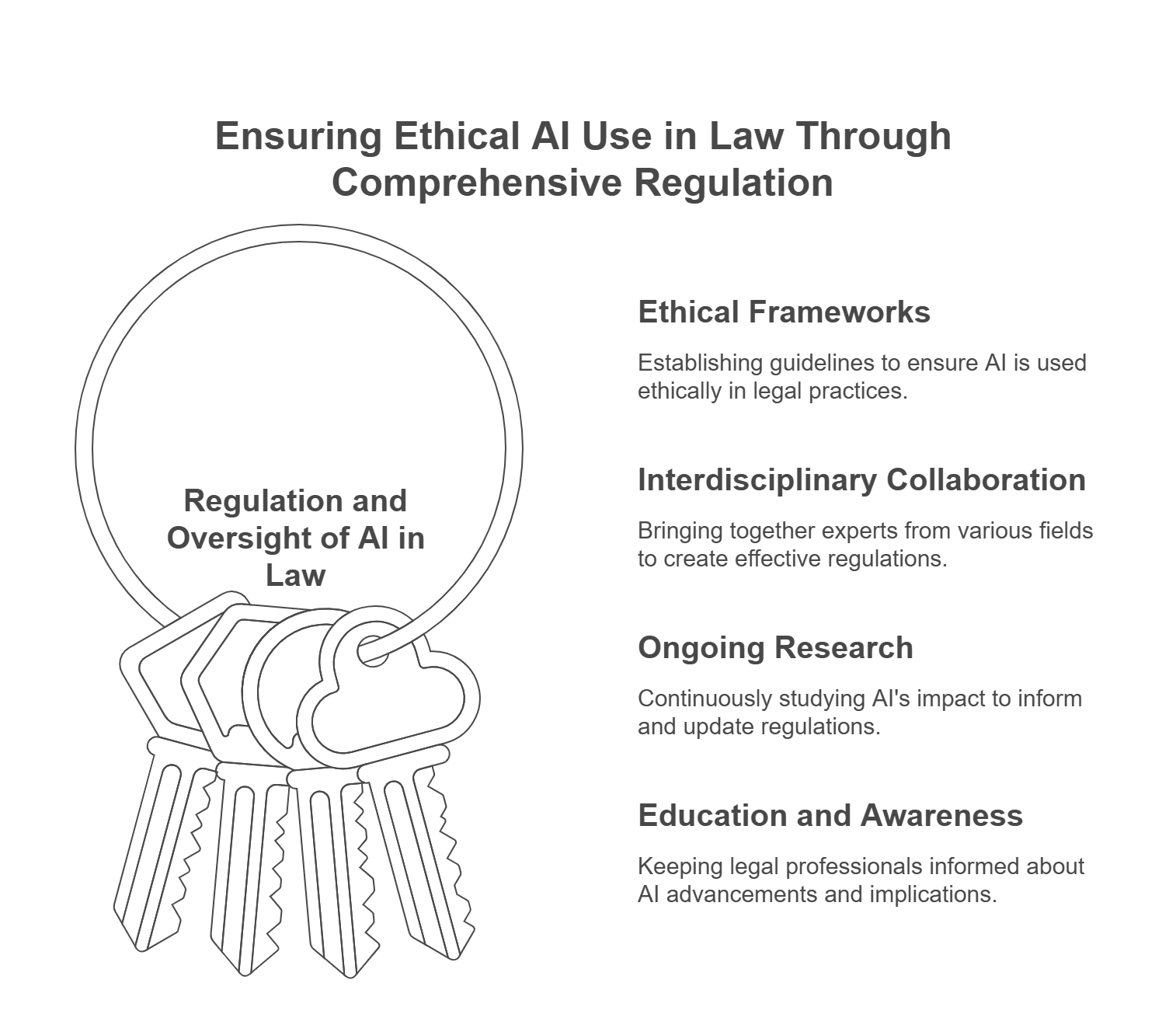The Rise of Legal Technology
The Great Equalizer: How Legal Tech is Democratizing Access to Justice
Legal technology is at the forefront of a significant transformation within the legal industry, heralding a new era where access to justice becomes more attainable for individuals and small businesses. Traditionally, legal services were often out of reach for many due to high costs and complicated processes. However, the rise of legal tech is changing that narrative, democratizing access by enabling legal professionals to offer cost effective legal services through innovative pricing arrangements and enhanced efficiency.
A pivotal shift is underway while technology breaks down barriers that previously hindered access to legal services. With platforms that automate legal processes, such as document creation and case management, law firms can operate more efficiently, reducing overhead costs and passing those savings onto clients. This democratization not only allows for enhanced affordability but also enables a diverse array of legal professionals—ranging from solo practitioners to small firms—to compete in a crowded market.
Moreover, legal tech is streamlining workflows, making them not only faster but also more effective and less prone to error. By implementing advanced solutions, attorneys can allocate their time to more strategic tasks, further enhancing the quality of service they provide. The legal landscape is undeniably changing, and the integration of technology, including AI and automation tools, such as those offered by Lead Autopilot, is not just a trend but a driving force in this ongoing evolution.
Trends Shaping the Legal Industry
Cloud-Based eDiscovery: Revolutionizing Document Management
As the legal industry continues to embrace technology, cloud-based eDiscovery is emerging as a critical game-changer. The adoption of cloud solutions for electronic discovery offers a multitude of benefits, including faster processing times, improved security measures, and heightened efficiency. In an age where vast amounts of electronic data are generated daily, the ability to manage this information effectively is paramount. Document automation tools further enhance document management by enabling law firms to generate and manage legal documents seamlessly, significantly cutting down on drafting time and improving the overall accuracy of legal work.
The right software can transform massive datasets into organized, secure workflows tailored to specific cases. This transition not only alleviates the burden of physical storage but also enhances collaboration among legal teams working remotely or across different locations. eDiscovery involves the intricate process of collecting, storing, protecting, and organizing sensitive files—a task made simpler by leveraging cloud technology.
Firms seeking to optimize their case handling should prioritize tools that provide a dedicated digital workspace, ensuring that all pertinent case materials are easily accessible and secure. This shift not only streamlines operations but also mitigates risks associated with data breaches, an ever-present concern within the legal profession.
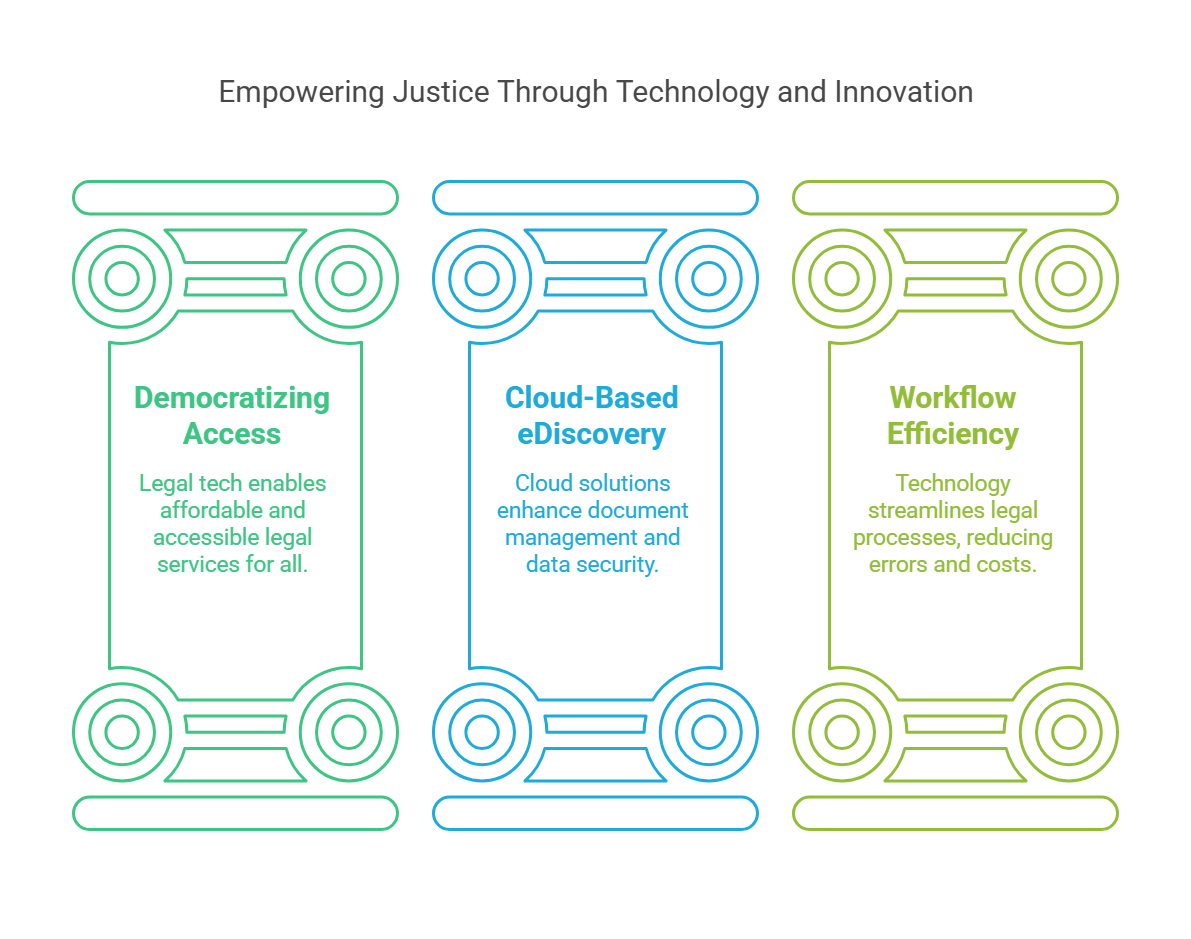
The Impact of Artificial Intelligence on Business Processes
AI Tools for Document Drafting and Review
Artificial intelligence (AI) is no longer a distant future concept but rather an essential tool quickly becoming integral in the legal field. The rise of AI-powered technologies is revolutionizing various aspects of legal work, particularly in the drafting, reviewing, and management of legal documents. By employing sophisticated algorithms and data analysis, these tools can assist legal professionals in research, contract analysis, and due diligence, leading to significant efficiency and accuracy improvements.
For instance, AI applications can swiftly analyze large volumes of documents, identifying key clauses or inconsistencies that might otherwise take hours of manual labor. This capability allows lawyers to spend more time on critical thinking, strategic planning, and client interactions rather than getting bogged down by administrative tasks. However, the integration of AI also brings inherent challenges, such as addressing potential biases in algorithms and ensuring compliance with data privacy regulations.
As legal professionals look ahead to 2025, staying informed about these AI trends and tools will be crucial for maximizing the benefits of technology while navigating the associated risks. The landscape for contract management is evolving, and those who leverage these tools will likely find themselves at a distinct advantage.
The Future of Law Firms
Virtual Law Firms and Remote Work: The New Normal
The advent of virtual law firms and the rise of remote work have drastically transformed the legal profession. Technological advancements are facilitating this shift, enabling lawyers to operate effectively from virtually anywhere, thus expanding access to legal services beyond geographical limitations. This model not only attracts a global talent pool but also allows firms to cater to clients from diverse backgrounds and locations. Legal departments are also adapting to these changes, increasingly favoring virtual law firms for their cost-effective and personalized services.
Embracing remote work presents numerous advantages for legal practitioners. There are significant cost savings associated with reduced overhead expenses, as firms can operate without the need for expansive physical office space. Additionally, remote work fosters an environment of flexibility—lawyers can balance their personal and professional lives more effectively, leading to increased job satisfaction and productivity.
As law firms adapt to this new normal, they are empowered to implement innovative practices that enhance client engagement and service delivery. The ability to communicate seamlessly via digital channels, schedule meetings effortlessly, and manage cases on-the-go is propelling the profession into a new era of efficiency and client focus. Embracing tools that enhance these practices, such as Lead Autopilot for automating client interactions, offers firms a competitive edge and ensures they remain relevant in an ever-evolving landscape.
The shift towards virtual law firms and remote work is not merely a reaction to changing circumstances; it is an evolution that positions the legal industry for long-term sustainability and success.
The Evolution of Client Experience
Generative AI for Personalized Client Experiences
With the continuing evolution of legal technology, generative AI is rapidly transforming how legal firms engage and collaborate with their clients. This progression towards AI-powered solutions allows law firms to create personalized client experiences tailored to individual needs and preferences. By customizing interactions and automating various routine tasks, legal professionals can focus on high-value work that truly requires their expertise and nuanced understanding.
One of the key drivers behind this evolution is the ability of AI tools, like Lead Autopilot, to streamline interactions by integrating seamless, conversational AI processes that can efficiently handle simpler inquiries and tasks. This ensures that human resources are dedicated to complex issues that necessitate strategic thinking and creativity. As the demand for efficient, cost-effective legal solutions continues to rise, the role of AI in legal services is expected to expand, further enhancing client satisfaction and loyalty.
AI also acts as a significant enabler, allowing law firms to engage with clients in a more flexible and meaningful way, thus strengthening trust and retention. By leveraging the capabilities of platforms like Lead Autopilot, firms can ensure that they remain competitive by adopting innovative solutions that foster a more intuitive and responsive client journey.
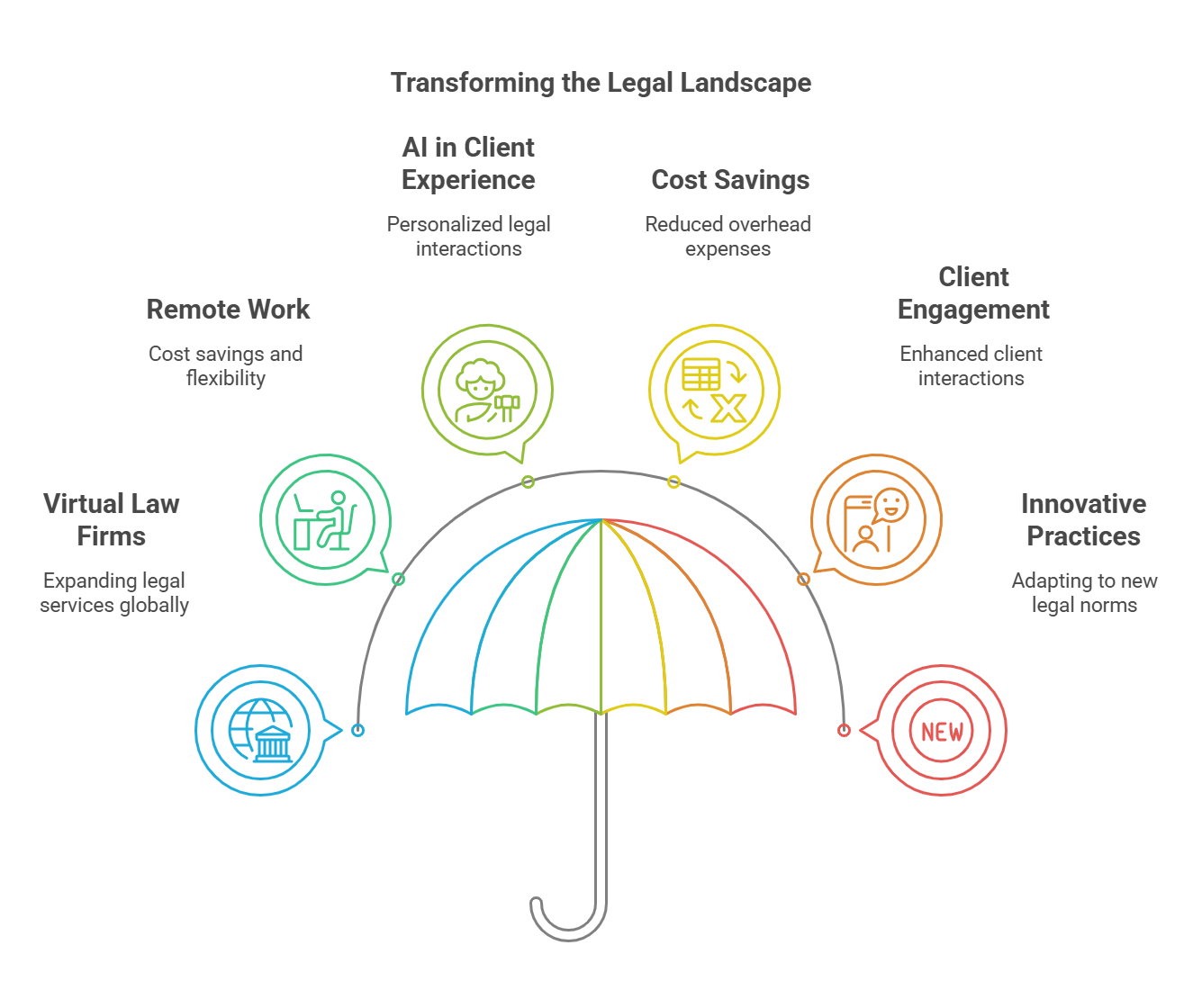
The Shift Away from the Billable Hour
Alternative Billing Methods for Law Firms
The traditional billable hour model, long synonymous with the legal industry, is gradually giving way to more client-friendly and efficient alternative billing methods. Trends such as flat-fee agreements and subscription-based services are gaining momentum, reflecting a broader shift towards predictability and transparency in legal billing.
Implementing flat rate agreements and product-based services allows firms to widen their client base by attracting those who seek clear and upfront pricing structures. This transformation not only paves the way for enhanced revenue growth but also alleviates the burden of manual, non-billable tasks that previously occupied significant time and resources. By minimizing these tasks, law firms can redirect their focus towards strategic growth initiatives and client-facing activities that boost profitability and satisfaction.
Lead Autopilot, with its powerful automation features, supports this shift by enabling firms to streamline operations efficiently, ensuring that billing processes are both effective and client-centered. Alternative billing models help law firms scale revenue and improve overall client satisfaction by offering transparent, accessible legal services.
Business Development and Client Acquisition
Online Payments and Cashless Transactions: The Future of Billing
The legal industry's landscape for business development and client acquisition is undergoing a transformation with the increasing adoption of online payments and cashless transactions. As firms expand their online marketing efforts and harness the potential of digital platforms, developing a strong social media presence and offering online legal products or services will be crucial for reaching and attracting the ideal clientele.
As cash payments become increasingly obsolete, online payment platforms offer a convenient and secure alternative, enhancing the client experience. This shift not only supports faster transactions but also increases collection rates, leading to greater financial growth and operational profitability.
Furthermore, the integration of Lead Autopilot into billing and payment processes can optimize these strategies by ensuring seamless operation and access to comprehensive analytics—insights that inform marketing strategies and improve client interaction. Embracing these technologies ensures that legal practices remain agile, adaptive, and competitive in a rapidly digitizing environment.
The Role of Technology in Enhancing Client Experience
Technology is at the forefront of transforming the client experience within the legal sector. Through the adoption of innovative solutions, law firms can streamline processes and make legal services more accessible and responsive to client needs. Technologies like AI-driven chat systems, automated appointment scheduling, and CRM integrations play crucial roles in creating a cohesive client experience that is efficient and personalized.
Platforms like Lead Autopilot drive client engagement by offering seamless multichannel communication and precise client interactions. With expanded analytic capabilities, firms can better understand client needs, optimize service offerings, and enhance overall satisfaction and loyalty. Such technological advancements provide law firms a competitive edge, ensuring success in a rapidly evolving digital landscape.
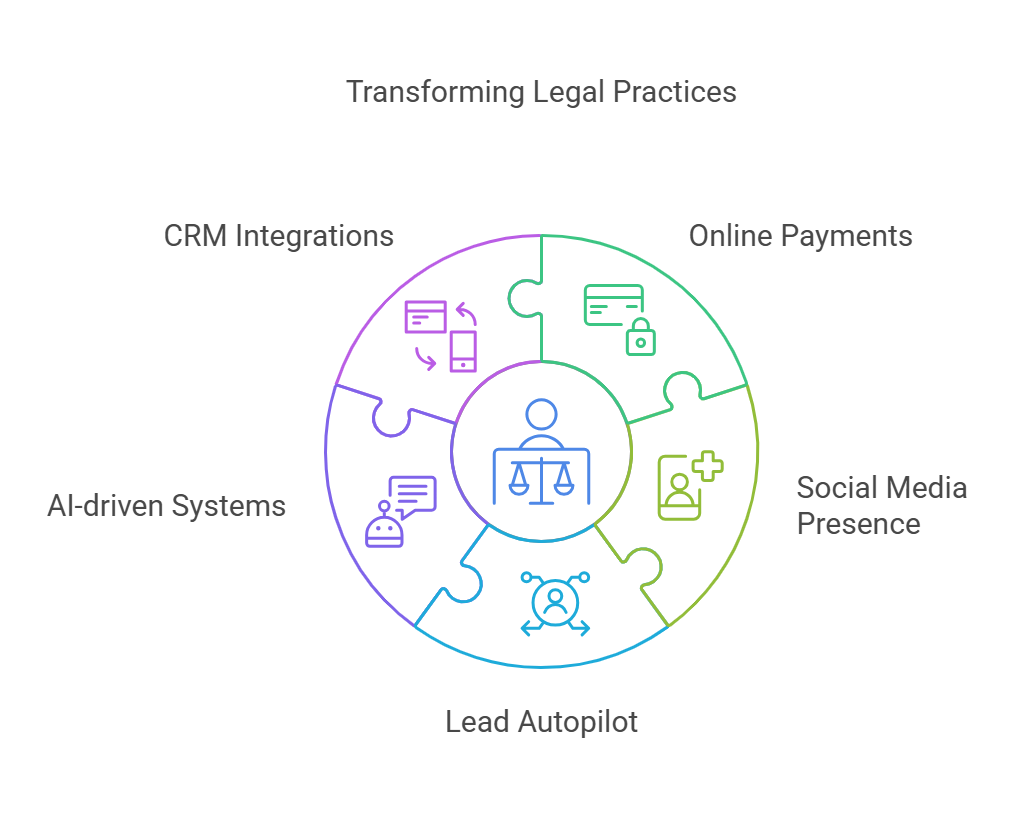
Looking Ahead
The Future of Legal Work: How Technology is Changing the Landscape
The legal profession stands on the brink of a transformative era, driven by remarkable technological advancements poised to reshape every aspect of legal work. As traditional barriers come down, technology is making legal services faster, more efficient, and more accessible to a broader audience. This new era requires lawyers to stay ahead of the curve by embracing these technological shifts to succeed.
Lead Autopilot exemplifies the power of technology in the legal domain, offering an ideal balance of automation, personalization, and strategic insight. For law firms eager to thrive, integrating cutting-edge technology is imperative, ensuring services are competitive, client-centered, and future-proofed.
As the legal industry continues to evolve, embracing innovations like those provided by Lead Autopilot will not just be an advantage but a necessity. Compelled by the advantages technology offers, legal professionals must adapt quickly or risk falling behind. The legal world's future is being redefined, and technology stands at its core, guiding firms toward new opportunities and sustainable growth.
For more information on how Lead Autopilot can transform your legal practice, contact us today.
